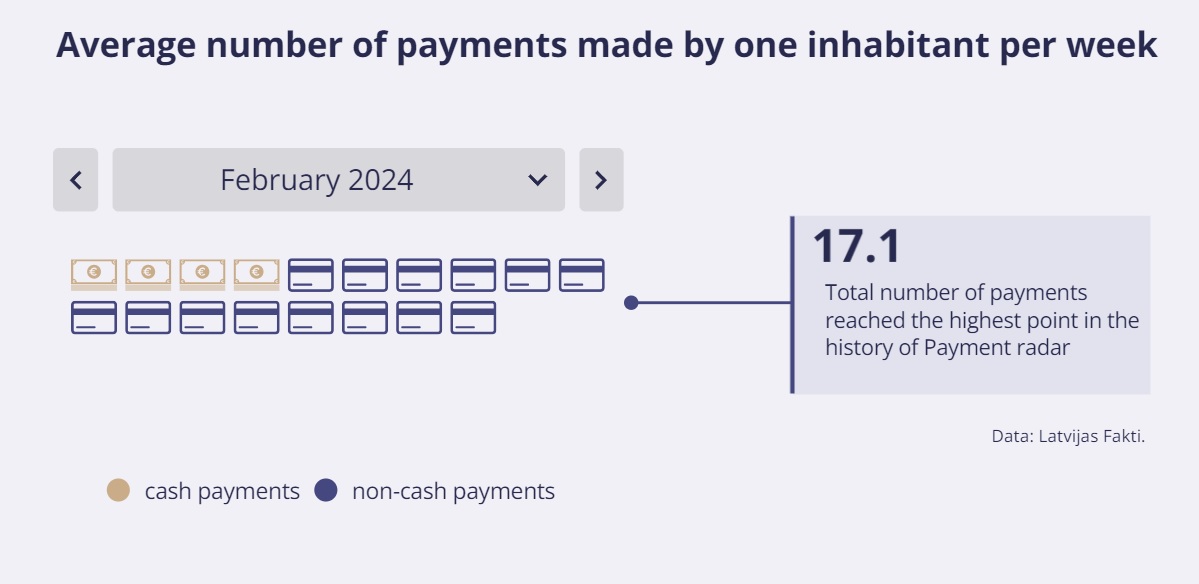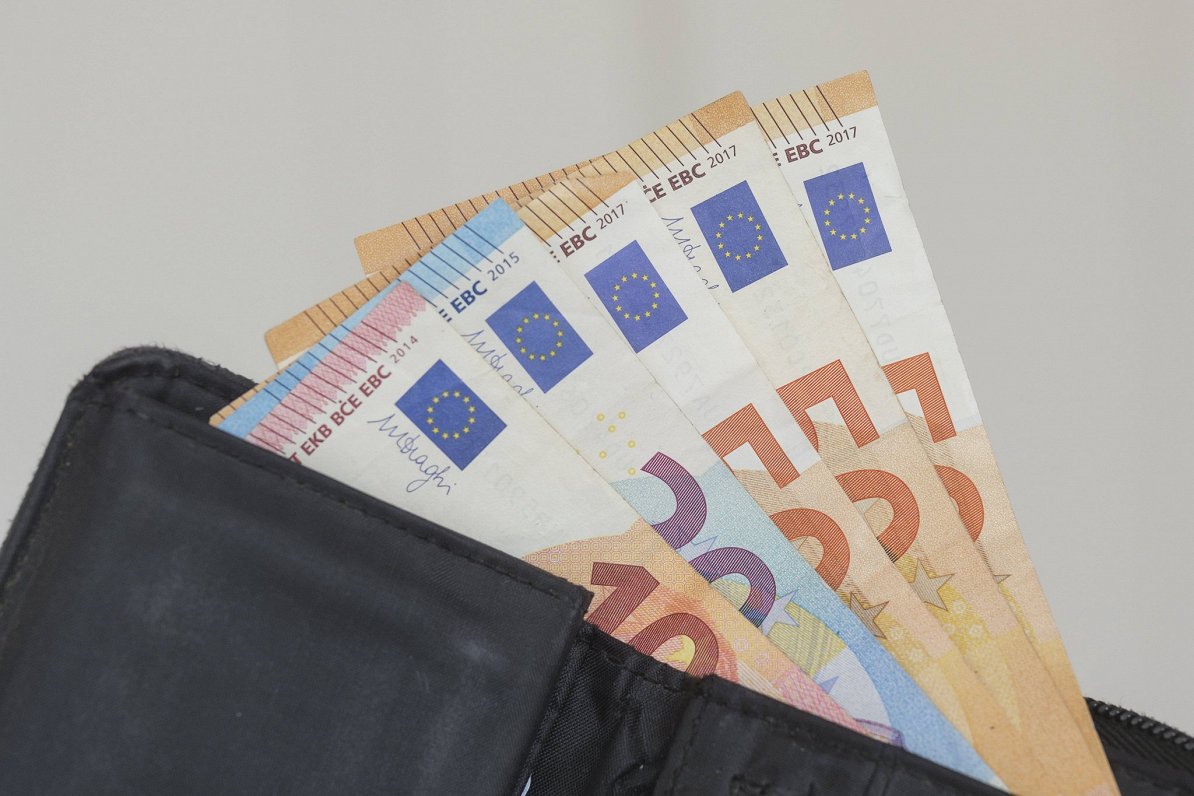This theoretical person makes 17 payments per week, of which 13 are non-cash payments and just four are made using the old-fashioned notes and coins method.
The figures come from research carried out for LB by the Latvijas Fakti market research company.

Aigars Freimanis, Director of Latvijas Fakti commented: "Research data suggests rising popularity in the use of non-cash payments. In February, non-cash payments accounted for 77% of all transactions conducted in Latvia within one week, while cash payments constituted a mere 23%.
"Respondents with higher education and higher income use non-cash payment options more actively. Even with relatively lower income levels, respondents aged 15 to 24 years actively embrace the new payment technologies. While not too rapidly, payments with both contactless cards and mobile phones are steadily increasing. Interestingly, contactless card payments are popular with both young people and pensioners.
"Meanwhile, smart phone payments are mostly utilised by young people, whereas pension-aged respondents are much more reserved towards this option. Pensioners' reservations may be attributed to the types of smart phones they own. These phones are often older models, changed less frequently, and therefore have limited technological capabilities."
Meanwhile, though most people in Latvia are aware of the existence of so-called 'crypto' assets, few people judge them worthy of investment. 94 % of respondents in February are aware of crypto assets but only 7% of respondents have purchased a crypto asset. Nevertheless, the figure is up on the 4% who had done so a year ago.
The full Payment Radar data is available here.


























